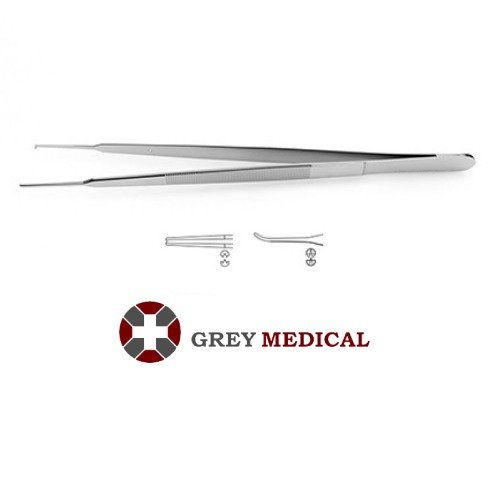Gerald forceps with teeth are specialized surgical instruments used primarily in delicate procedures requiring precision and minimal trauma to tissues. These gerald forceps with teeth are a staple in various medical fields, including vascular, plastic, and general surgeries, where meticulous handling of tissues is critical.
Design and Features of Gerald Forceps with Teeth
Gerald forceps are characterized by their slender, elongated design and fine tips with interlocking teeth. The teeth provide a secure grip on tissues, reducing the risk of slipping while minimizing the pressure exerted on delicate structures. Typically made from high-quality stainless steel, these forceps ensure durability, resistance to corrosion, and the ability to withstand repeated sterilization processes.
The ergonomic design of the handle offers a comfortable grip, allowing surgeons to maintain control during lengthy procedures. The forceps' lightweight construction helps reduce hand fatigue, enabling precise manipulation of tissues over extended periods.
Applications in Vascular Surgery
In vascular surgery, Gerald forceps with teeth are essential for handling fine tissues and sutures. The instrument's precise grip is invaluable when working with blood vessels, where any slip or excessive pressure can cause significant damage. These forceps allow surgeons to carefully manipulate tissues and secure sutures without compromising the integrity of the vascular structures.
During procedures like vein grafting or aneurysm repair, Gerald forceps help in holding and positioning the delicate vascular tissues, ensuring accurate placement of sutures and grafts. Their fine teeth provide just enough grip to secure the tissue without crushing or causing ischemia.
Role in Plastic and Reconstructive Surgery
Plastic and reconstructive surgeries often require handling delicate skin, muscle, and fascia tissues. Gerald forceps with teeth are ideal for these procedures as they allow surgeons to lift, hold, and suture tissues with minimal trauma. The instrument's fine tips are particularly useful in procedures like facelifts, rhinoplasty, and reconstructive surgeries where precision is paramount.
The interlocking teeth ensure a firm hold on the tissue, facilitating accurate suturing and reducing the risk of tissue damage. This precision is crucial in achieving optimal aesthetic and functional outcomes, especially in procedures that involve intricate tissue manipulation.
Use in General Surgery and Microsurgery
In general surgery, Gerald forceps with teeth are often used in procedures involving the abdominal cavity, thoracic organs, or soft tissues. Their ability to grip delicate tissues securely makes them an essential tool in surgeries where careful dissection and suturing are required.
In microsurgery, where the surgeon works under a microscope, the precision offered by Gerald forceps is unmatched. Their slender design and fine tips allow for delicate manipulation of small anatomical structures, ensuring successful outcomes in complex surgeries involving nerves, blood vessels, or small soft tissues.
Advantages of Using Gerald Forceps with Teeth
The key advantages of Gerald forceps with teeth include:
- Precision: The fine tips and interlocking teeth provide a secure grip on delicate tissues, allowing for accurate manipulation and suturing.
- Control: The ergonomic handle and lightweight design enable surgeons to maintain control and reduce hand fatigue during long procedures.
- Versatility: These forceps are suitable for a wide range of surgical specialties, making them a versatile addition to any surgical toolkit.
- Durability: Constructed from high-quality materials, Gerald forceps are designed to endure the rigors of surgical use and sterilization.
Maintenance and Care
To ensure the longevity and performance of Gerald forceps with teeth, proper maintenance is essential. Regular inspection for wear or damage, particularly on the tips and teeth, is crucial. The forceps should be thoroughly cleaned and sterilized after each use, following standard protocols to prevent infection and maintain their integrity.
Conclusion
Gerald forceps with teeth are a critical tool in surgeries that require precision and careful handling of delicate tissues. Their design and functionality make them indispensable in vascular, plastic, general, and microsurgical procedures. By offering unparalleled control and reducing the risk of tissue trauma, these forceps contribute significantly to successful surgical outcomes and patient care.





Comments